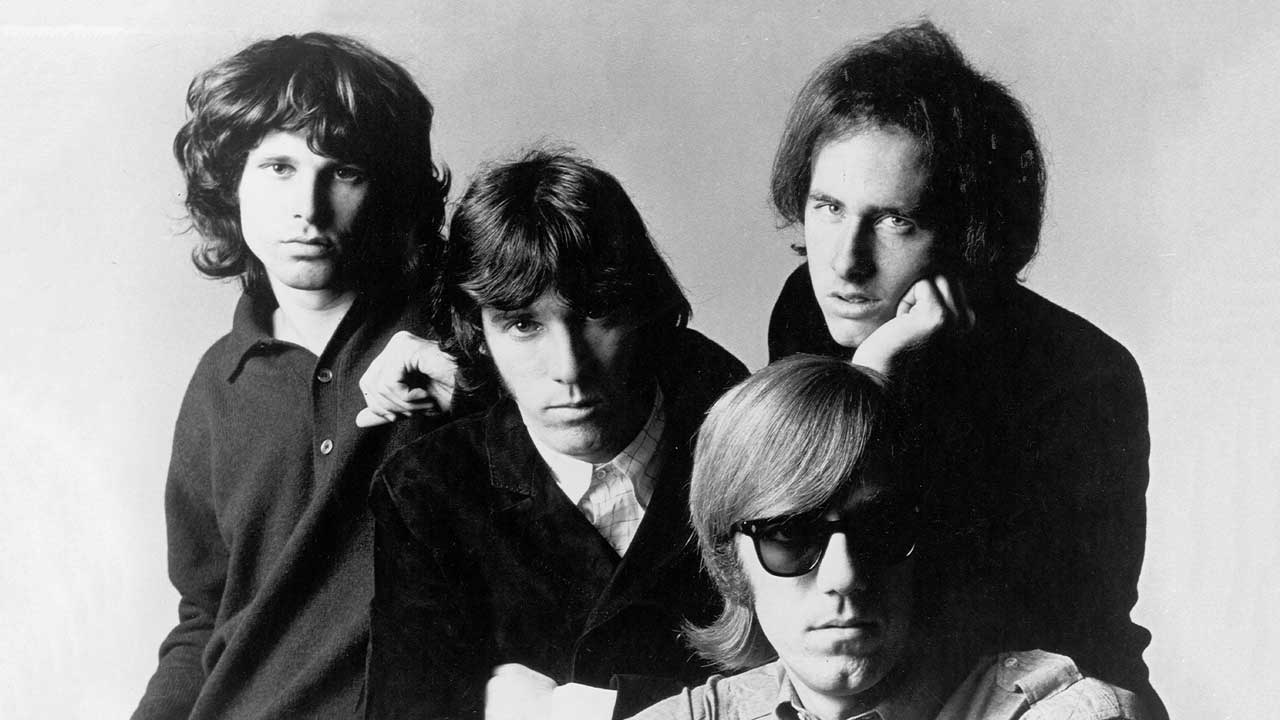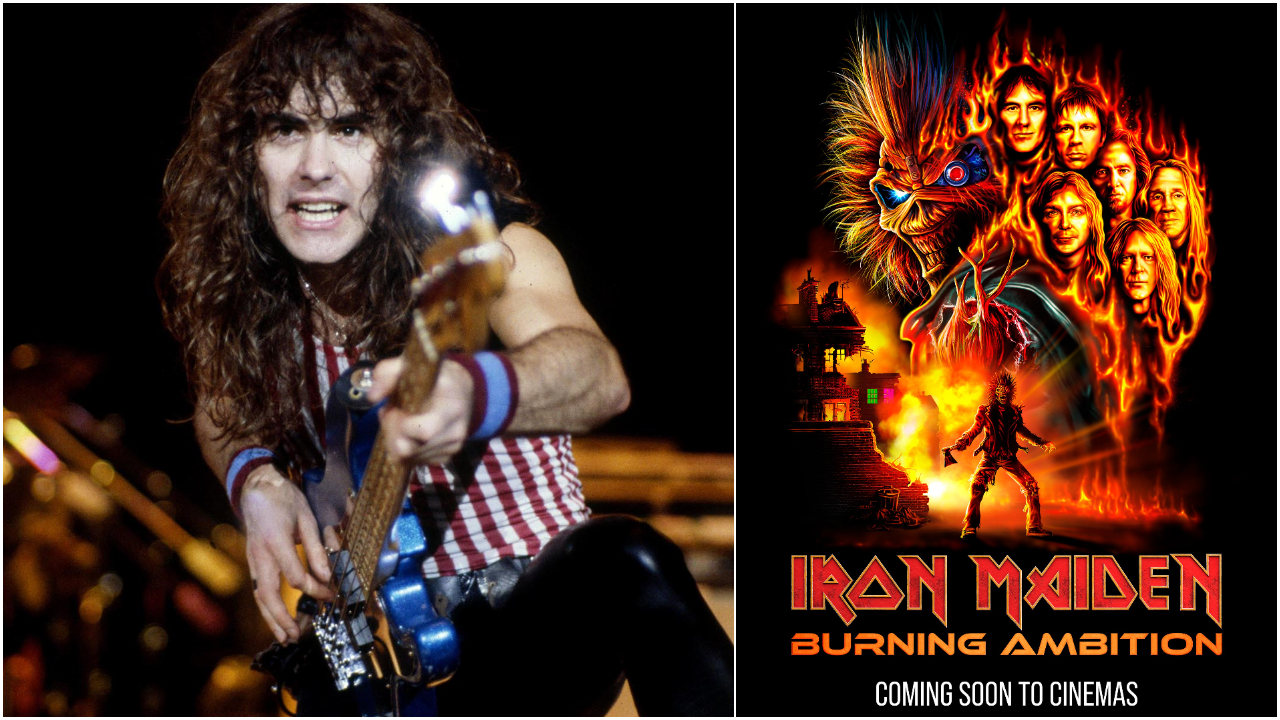Light My Fire turned The Doors into superstars: For a moment, it also turned Jim Morrison into a target for the Mob
The Doors experienced their first taste of big success with Light My Fire, but it infuriated a certain Frank Sinatra

Select the newsletters you’d like to receive. Then, add your email to sign up.
You are now subscribed
Your newsletter sign-up was successful
Want to add more newsletters?

Every Friday
Louder
Louder’s weekly newsletter is jam-packed with the team’s personal highlights from the last seven days, including features, breaking news, reviews and tons of juicy exclusives from the world of alternative music.

Every Friday
Classic Rock
The Classic Rock newsletter is an essential read for the discerning rock fan. Every week we bring you the news, reviews and the very best features and interviews from our extensive archive. Written by rock fans for rock fans.

Every Friday
Metal Hammer
For the last four decades Metal Hammer has been the world’s greatest metal magazine. Created by metalheads for metalheads, ‘Hammer takes you behind the scenes, closer to the action, and nearer to the bands that you love the most.

Every Friday
Prog
The Prog newsletter brings you the very best of Prog Magazine and our website, every Friday. We'll deliver you the very latest news from the Prog universe, informative features and archive material from Prog’s impressive vault.
Saturday August 5, 1967. The hottest hit of the summer, Light My Fire, begins its second week at No.1 on the US Billboard chart. A colossal moment not just for The Doors – the tripped-out, LA-noir four-piece bringing arthouse cinema and beat poetry to rock – but also for the whole history of late-20th-century music.
Officially, the summer of ’67 is about Sgt. Pepper, the Monterey festival and wearing flowers in your hair. Other singles in the American Top 10 that week include the equally immortal All You Need Is Love, A Whiter Shade Of Pale and White Rabbit. But The Doors are not about summer or love; The Doors are about rock apocalypse. The only love-love-love they chorus of, is the one burning on a funeral pyre. As Doors singer Jim Morrison yowled like a wildcat: ‘Come on baby light my fire/Try to set the night on… FIRE!’
Light My Fire was less Summer Of Love, more winter in hell. It had originated a year before, when The Doors were the $40-a-night house band at the Fog, a flea haven on Sunset. The stage stood above a wooden shack that served as the toilets. Playing five sets a night, four nights a week to empty rooms, the band began noodling, then experimenting, then creating forked lightning. First to benefit was a two-minute jingle-jangle called The End, now transformed into a lengthy Indian acid-rock raga.
Then there was Light My Fire, which guitarist Robby Krieger had come up with on his own after Morrison had chastised him for not writing more. Already at the Fog they had the bossa nova rhythm, the cascading Bach-like filigree intro and the extended phantom-of-the-opera instrumental section, Morrison crooning over it like an attentive vampire lover before the whole thing swirls into a gothic entanglement between the Light and the Dark. That’s how it appeared to Morrison and keyboard player Ray Manzarek, anyway, tripping on the purest Owsley acid. Or, as Morrison put it in his stoned-immaculate purr: “Our music can move people to a kind of emotional orgasm. For me it’s stirring, satisfying…”
On The Doors’ self-titled debut album, released in January 1967, Light My Fire was a little over seven minutes long. This was hard-core rock vérité, yet it was catchy. However, Elektra Records founder Jac Holzman, who signed The Doors, initially refused to release an edited version of it as a single. “I was counting on the crush of interest from [album-oriented] FM radio forcing [Top 40-oriented] AM radio to play it,” he said.
The band hit the road, and, just as Holzman predicted, Light My Fire swiftly became an FM staple, where you could hear the whole seven-minutes-plus in stereo. By the time Holzman made his move in April and released the heavily-edited 2min 52sec Light My Fire single, the album was selling 10,000 copies a month. Suddenly it was photo sessions, interviews, groupies, money. “Suddenly it felt like we could do anything,” Manzarek said.
This was 23-yearold Jim Morrison in his ‘young lion’ plume: black leather pants, hair a halo of ringlets, the newest, grooviest pop icon, arms outstretched in mock-crucifixion pose. A martyr to the muse, forcing open the doors of perception by any means available: acid, booze, weed, speed, and eventually coke and heroin. While hanging from hotel balconies and reciting immortal poetry. As drummer John Densmore remarked ruefully: “Self-destruction and creativity don’t have to come in the same package… But in Jim they came together so we had to accept it.”
Sign up below to get the latest from Classic Rock, plus exclusive special offers, direct to your inbox!
Or as Krieger put it: “It would have been a lot easier if Jim had been just a normal genius.” In July, when they made their first big TV appearance, miming to Light My Fire on American Bandstand, its host Dick Clark declared them “The biggest, most fantastically successful group in the coming year – The Doors!”
The darkness was never far off, however. Morrison hated Krieger for having written Light My Fire. Everywhere Morrison went, people kept congratulating him for writing a song he’d struggled to learn the lyrics of, considering it a throwaway. By September, both Light My Fire and The Doors had topped the US charts. At their shows, teenage girls now outnumbered the freaks.
A fortnight later The Doors made their fateful appearance performing Light My Fire live on The Ed Sullivan Show – complete with Morrison’s broken promise to Sullivan not to sing the line: ‘Girl, we couldn’t get much higher.’ Sullivan went ballistic, yelling that The Doors would never do the show again. Morrison shrugged: “Hey, man, we just did The Ed Sullivan Show.”
Sullivan was not the only showbiz sultan gunning for Morrison after Light My Fire. The other was superstar Frank Sinatra. Two of Sinatra’s big hits in 1966 – Strangers In The Night and That’s Life – had wowed Morrison with how seamlessly Sinatra went from fierce sexy growl to bedside intimacy, and began mimicking Sinatra’s low-slung serenade, most obviously on Light My Fire. When the Mob-connected Sinatra heard Light My Fire, he was so convinced Morrison had ripped him off, he snapped: “We ought to let that guy have an accident.”
Too late. For The Doors, Light My Fire had changed everything. By the end of ’67, each band member had pocketed $50,000 (around $450,000 today). There were other perks too.
When Light My Fire went to No.1, Holzman invited them to choose a gift each to celebrate. Krieger and Manzarek got state-of-the-art reel-to-reel tape recorders, Densmore got a thoroughbred racehorse. Morrison, that famously vagabond free spirit, demanded and got a Gulfstream aqua blue Ford Mustang Shelby GT 500 with all-black interior. He jumped into the driver’s seat and roared off down Sunset. Determined, as always, to set the night on fire.
Mick Wall is the UK's best-known rock writer, author and TV and radio programme maker, and is the author of numerous critically-acclaimed books, including definitive, bestselling titles on Led Zeppelin (When Giants Walked the Earth), Metallica (Enter Night), AC/DC (Hell Ain't a Bad Place To Be), Black Sabbath (Symptom of the Universe), Lou Reed, The Doors (Love Becomes a Funeral Pyre), Guns N' Roses and Lemmy. He lives in England.

